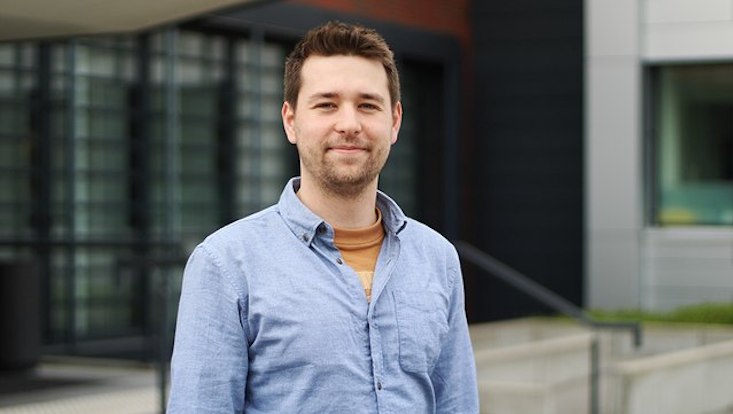Andrii Dashko
21 March 2024

Photo: Andrii Dashko
Andrii Dashko is from Kyiv, Ukraine. He completed his master's degree in 2022 from a joint program between the Technical University of Munich (TUM) and Ludwig Maximilian University (LMU) in München. His master's thesis, titled "Debye mass effects in the Dark Sector in the Early Universe," explored the impact of the Debye mass thermal scale on the evolution of Dark Matter in the Early Universe.
What is the topic of your research?
I'm part of the DESY Theory group, working under the supervision of Georg Weiglein, focusing on the topic of Electroweak Phase Transitions in the Early Universe. Our aim is to methodically study possible phase transitions in the Early Universe within models with an extended Higgs sector. We seek to understand uncertainties and improve on existing tools for phenomenological studies. The phenomenology of thermally driven phase transitions is often only qualitatively understood, with results frequently being highly sensitive to theoretical uncertainties such as gauge dependence and renormalization scale variance. Therefore, we systematically account for these uncertainties and utilize the Effective Field Theory (EFT) framework to study phase transitions.
What fascinates you about your research focus?
I like that my work brings together formal theoretical framework and ideas with phenomenological studies of feasible extended Higgs sector. In my work, I incorporate numerous concepts from EFTs, which I consider to be an exceptional tool for description of various physical systems. Moreover, signal from the strong first order phase transition may be detected soon by gravitational wave detectors.
I also want to highlight the incredibly beneficial discussions I'm having with numerous of my colleagues at DESY.
What do you like about the cluster Quantum Universe?
I view the Quantum Universe cluster as an amazing community of physicists with widespread interests. During the QU Days and other cluster meetings, I always appreciate listening to presentations by scientists who specialize in different fields. This way, I can discover new insights and occasionally incorporate their ideas into my own work. It’s also a perfect opportunity to present my own work and discuss it with experienced researchers. Furthermore, I truly appreciate the range of courses offered by the cluster, both focused on physics and mathematics as well as soft-skill seminars. I believe that continuous self-development and learning are essential, and these courses precisely offer that. Belonging to a cluster gives a sense of being part of a bigger community and being engaged in various research areas.
What do you like to do in your free time?
During my free time, I really enjoy exploring new places, both on foot and on my bike. Together with fellow friends from DESY we often go bouldering, play board games or gather to master our cooking skills. In addition, these days, a portion of my free time goes to volunteering projects aimed to help Ukrainians affected by the war.
